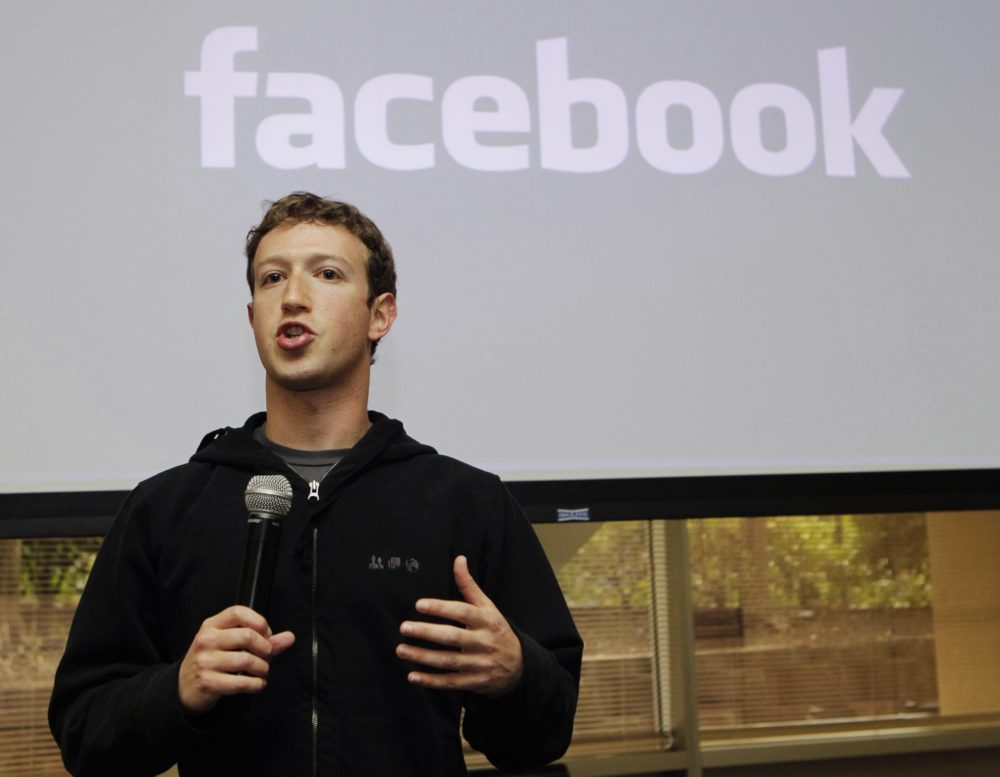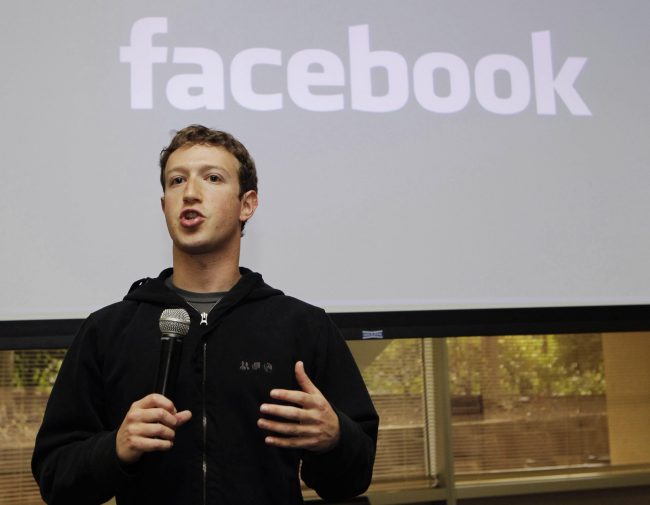
Mark Zuckerberg at an event for Facebook. The company has long been under the public microscope for their privacy settings. (Associated Press)
“What is the difference between Mark Zuckerberg and me? I give private information on corporations to you for free, and I’m a villain. Zuckerberg gives your private information to corporations for money and he’s man of the year,” Julian Assange said.
WikiLeaks’ Julian Assange had a few choice words when drawing a comparison between his website and Mark Zuckerberg’s Facebook. His quote displayed above has spread like wildfire. While the two have become household names, they represent two entirely different trains of thought.
Assange claims to promote a liberation from the culture of secrets and censorship that governments and private corporations are believed to survive on. His name has become synonymous with his website that publishes submissions of private, secret and classified media from anonymous sources. In the process, he has gained a great degree of fame or infamy (depending on one’s opinion).
Zuckerberg on the other hand is a man who has changed the way human beings communicate and perhaps even live. Voted “Man of The Year” by Time Magazine in 2010, he has become a somewhat controversial figure, especially after the release of the movie “The Social Network.”
Facebook is undeniably a fantastic creation but big question marks remain over the security of the privacy of its nearly 800 million (and counting) users. He must do more to assuage people’s concerns. For instance, a recent flaw in Facebook’s privacy settings allowed prying users to access private photos of Zuckerberg himself.
It is very important for people to understand how their privacy is probably not stored away as safely as they think it is. In fact, there is a possibility that Facebook isn’t as interested in privacy protection as they claim to be.
One must remember that no matter how friendly they make it look from the outside, behind it all Facebook is a business. And like any other business they must sell a product, service or both. To consumers, they provide the service of an online social networking site.
However, to organizations, they provide a new and useful marketing tool that runs on the information of its users. Furthermore, businesses do what they do to make money and their investors would like them to make as much of it as possible. Unfortunately, every Facebook user might very well be an information-filled product sold to the marketing departments of various organizations.
The real story is in the fact that all of this is quite obvious. This is the only way the website’s business works. They have been caught toeing the line of privacy misuse repeatedly. What is even worse is the fact that they have denied and then accepted doing so each time. If Facebook truly had its users’ best intentions in mind then it would probably not get itself into trouble repeatedly. The fact that the Federal Trade Commission had to force Facebook to accept its laws does not help their case at all.
However, the irony is in the fact that they know they have the world hooked. No matter how much people complain and dislike their changes, an insignificant fraction of their users probably leave. Nobody is being forced to use Facebook and the company knows it.
The truth may well be that Zuckerberg and his company’s business will remain safe from most kinds of trouble while its users’ information is not. After all, reprimands aside, they have found a legal way to share enough of its users’ information to earn more than $4 billion U.S dollars in revenue.
This is not to say that Julian Assange is an angel, but his comments put into perspective how skewed the priorities and perspectives of even those who are well informed might actually be.
Akbar is a junior majoring in business and psychology.









